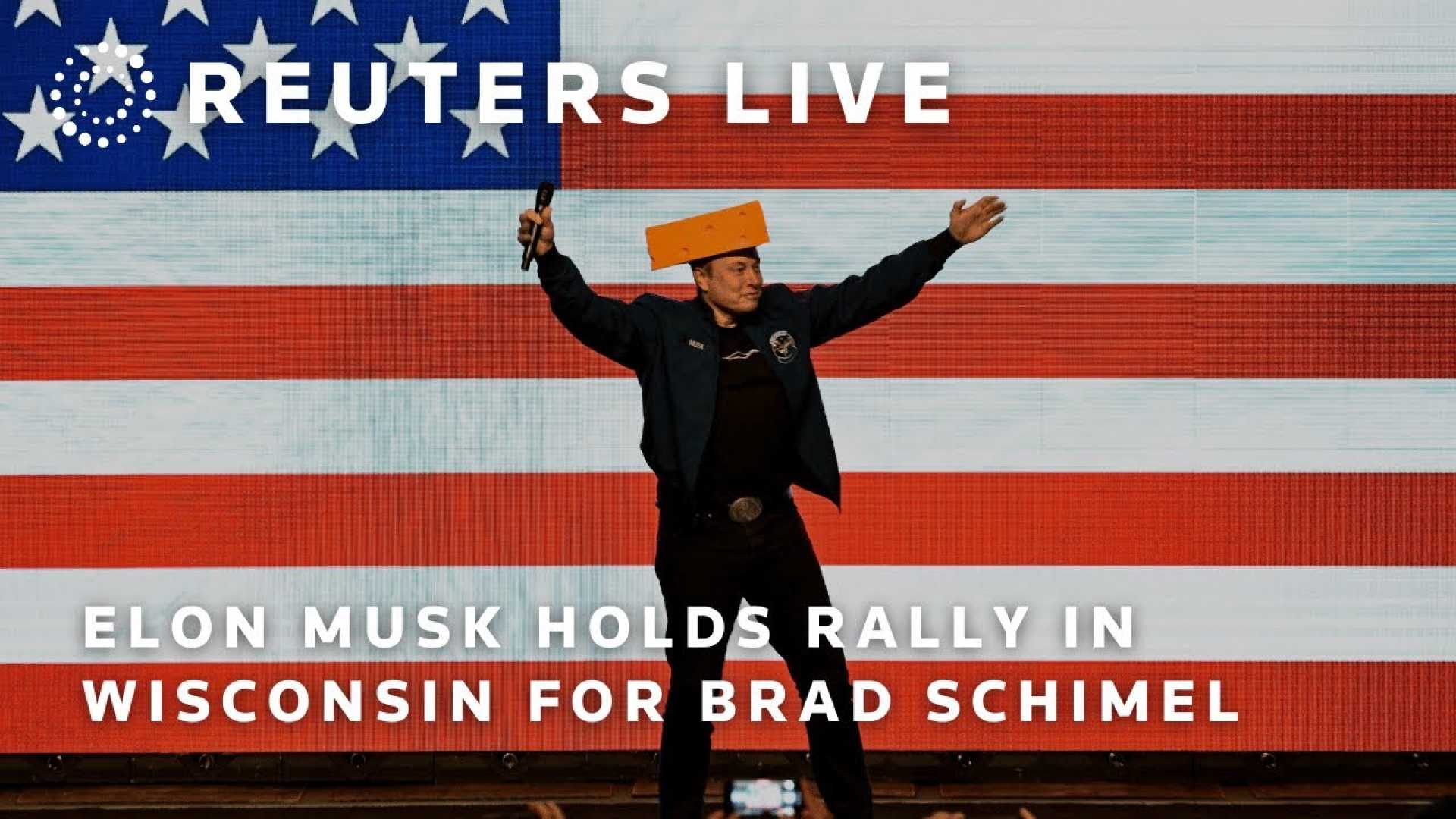News
Wisconsin Court Allows Musk’s $1 Million Payments to Voters Amid Legal Battle

MADISON, Wis. (AP) — The Wisconsin Court of Appeals denied a request from Democratic Attorney General Josh Kaul to halt billionaire Elon Musk’s plan to distribute $1 million checks to two voters during a rally set for Sunday, just ahead of a pivotal state Supreme Court election.
The court’s decision on Saturday follows Musk’s controversial involvement in the election, which is making headlines for unprecedented financial support and political implications tied to President Donald Trump’s agenda. Musk’s backing is reportedly aimed at Waukesha County Judge Brad Schimel, while Democrats are rallying behind Dane County Judge Susan Crawford.
Kaul filed a lawsuit on Friday, arguing Musk’s payments violate state law prohibiting the exchange of anything of value for votes. This follows a county court judge’s earlier refusal to grant an emergency injunction against the payments. Musk is expected to offer $1 million each to voters at the rally who have supported an online petition opposing ‘activist judges’. He previously provided a similar amount to a Green Bay man who signed the petition.
“We have poured over $20 million into this race,” Musk said in front of a crowd of about 2,000 in Green Bay. “This is a super big deal for the future of civilization.” He indicated his financial support also plays a role in ensuring the ideological balance of the Wisconsin Supreme Court, where current liberal justices hold a 4-3 advantage.
The contest is crucial as it may influence key political issues, including redistricting and abortion regulations, ahead of the 2026 midterms and 2028 presidential election. With a retirement from a liberal justice, the balance of the court is vulnerable to change.
Kaul emphasized that any payments to voters violate Wisconsin law, which expressly forbids offering anything of value to induce voting behavior. He referenced Musk’s previous actions in battleground states where he offered financial rewards for participation in petitions surrounding the First and Second Amendments.
Musk’s legal team countered that the payments are intended to promote grassroots opposition to activist judges, thereby framing the act as an exercise of free speech. However, both Musk and his attorneys face scrutiny regarding the legality of their campaign tactics.
The contest has already broken spending records for a judicial election in the U.S., with expenses exceeding $81 million. It has emerged as a referendum on the influence of billionaires like Musk in local politics and election outcomes.
As the election approaches, each side is mobilizing aggressively: Musk’s PAC has initiated payments and calls for grassroots activism, while Democrats seek to ensure voter turnout against Musk’s chosen candidate, Schimel.
Musk announced plans for a ‘Block Captain’ initiative rewarding participants for promoting Schimel’s campaign via social media. “If everyone in the MAGA movement shows up and votes for Brad Schimel, we will win,” said one of Musk’s beneficiaries, encouraging supporters to rally.
Crawford’s campaign criticized Musk’s actions as an attempt to overshadow local voters’ voices. “Wisconsinites don’t want a billionaire like Musk telling them who to vote for,” a spokesperson stated. As tensions mount, the court’s ruling has set the stage for an election that could drastically reshape the political landscape in Wisconsin.
Associated Press writer Scott Bauer contributed to this report.












